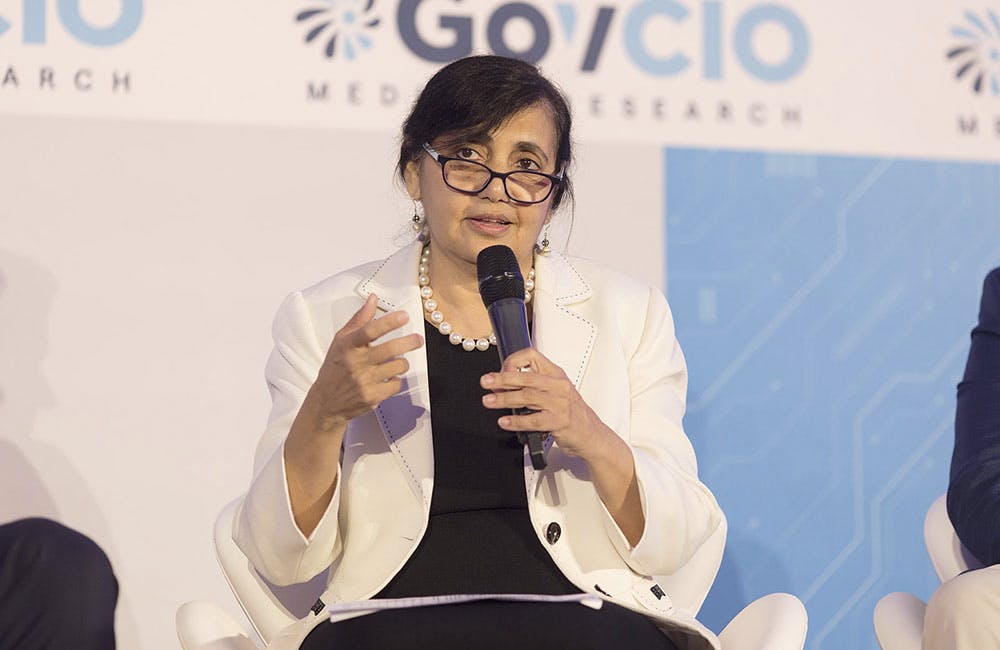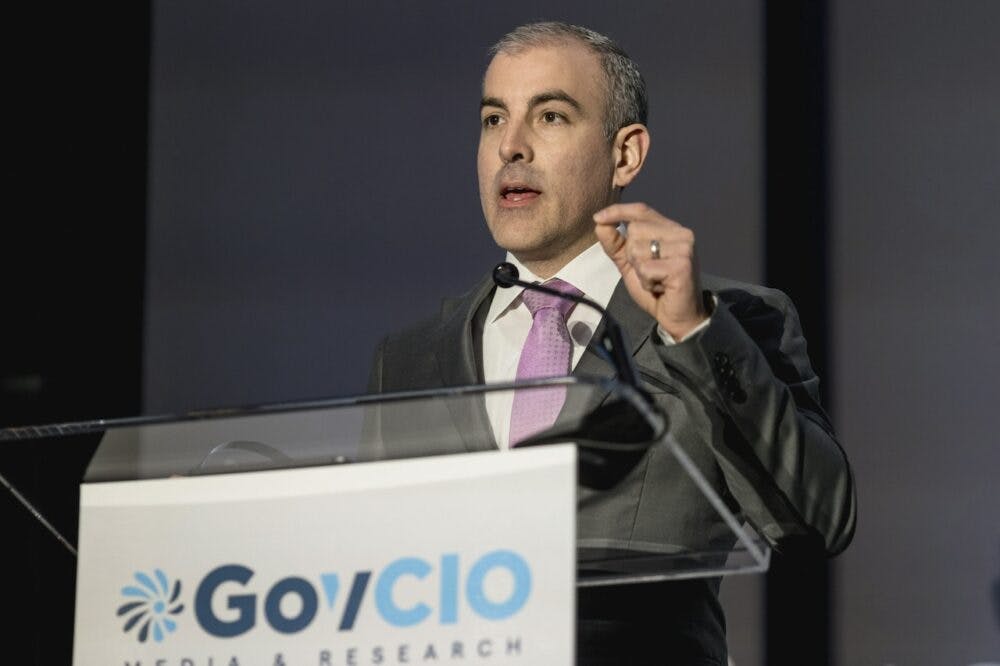How AI Improves Breast Cancer Detection
Experts say artificial intelligence is a game changer for breast cancer detection and will reduce health care disparities amid federal priorities in cancer care.

Approximately 1 in 8 women will be diagnosed with breast cancer during their lifetime, a disease that kills more than 40,000 women every year, but artificial intelligence (AI) can save lives before it’s too late.
On a national level, cancer is a presidential priority. As part of the reignited Cancer Moonshot initiative, the National Cancer Institute this week released an interagency plan to tackle cancer and reduce the cancer death rate over the next decade. Part of that will involve tools like AI to make a difference in detecting the disease.
AI uses computer-assisted detection to identify changes between mammograms. The computer-generated application is used to analyze mammograms and can find abnormalities years before a typical cancer diagnosis.
“It’s deep learning; it’s constantly learning. Not only does it point [cancer] out, but it points out the likelihood of malignancy,” Dr. Rachel Brem, director of breast imaging and intervention and professor at George Washington University, told GovCIO Media & Research in an interview. “Every time a mammogram is analyzed, it’ll get analyzed by the algorithms. It’s really a bioimaging marker.”
Mammogram screenings without the use of AI miss about 1 in 8 cases of breast cancer, according to a study from the American College of Radiology Breast Imaging Reporting and Data System.
For women with dense breasts, experts say AI is a gamechanger.
“We know that radiologists, even highly trained and specialized radiologists have particular difficulty with extremely dense breasts,” Brem said. “We can find more than 90% of breast cancer is on a mammogram. But if you have extremely dense breasts, even 60% of breast cancers may not be visible on mammograms.”
Nearly half of all women have dense breasts, which makes it more difficult to identity cancer because the sensitivity of mammographs depends on density.
Last month, the Food and Drug Administration (FDA) updated its guidance and made breast density reporting a national requirement.
“It’s not that the radiologist missed it, it’s just that the computer can find things that the human eye can’t,” Brem said.
The groundbreaking technology also provides an opportunity to eliminate health care disparities, which continue to rise in the U.S.
“We know that with implementation of AI, in more rural parts of the country where the underserved are getting a lot of their care, we can use AI to help the general radiologists function as well as or better than the sub-specialized radiologist,” Brem said.
AI is transforming health care and the future of a cancer diagnosis for all cancers. In 2021, the FDA launched GI Genius, an AI tool to detect cancer during a colonoscopy.
“The system was able to identify lab-confirmed adenomas or carcinomas in over 55% of patients, compared to 42% via a standard colonoscopy,” said Dr. Matthew Diamond, chief medical officer for digital health at FDA’s Center for Devices and Radiological Health.
“When AI is combined with traditional screenings or surveillance methods, it could help find problems early on, when they may be easier to treat,” he added.
As AI continues to spread across health care, Brem said some radiologist and health care officials worry AI will eliminate their jobs and duties.
“The answer is that it won’t. You have to have a radiologist or human working with AI in order to optimize the opportunities with AI,” Brem said. “Don’t worry about AI’s impact on your job, it will only make us better radiologists, better engineers, better at other things — because we can use both the experience that humans have, as well as the objective analyses of AI, to optimize patient care.”
While AI systems are currently available, they are not widespread. The systems are being used in at least five hospitals and clinics nationwide, performing 35,000 mammogram screenings a year.
“AI is coming. We are not going to hold it back,” Brem said.
This is a carousel with manually rotating slides. Use Next and Previous buttons to navigate or jump to a slide with the slide dots
-

AI Foundations Driving Government Efficiency
Federal agencies are modernizing systems, managing risk and building trust to scale responsible AI and drive government efficiency.
43m watch -

Agencies Tackle Infrastructure Challenges to Drive AI Adoption
Federal agencies are rethinking data strategies and IT modernization to drive mission impact and operational efficiency as new presidential directives guide next steps.
5m read Partner Content -

Generative AI Demands Federal Workforce Readiness, Officials Say
NASA and DOI outline new generative AI use cases and stress that successful AI adoption depends on strong change management.
6m read -

The Next AI Wave Requires Stronger Cyber Defenses, Data Management
IT officials warn of new vulnerabilities posed by AI as agencies continue to leverage the tech to boost operational efficiency.
5m read -

Federal CIOs Push for ROI-Focused Modernization to Advance Mission Goals
CIOs focus on return on investment, data governance and application modernization to drive mission outcomes as agencies adopt new tech tools.
4m read -

Fed Efficiency Drive Includes Code-Sharing Law, Metahumans
By reusing existing code instead of rewriting it, agencies could dramatically cut costs under the soon-to-be-enacted SHARE IT Act.
5m read -

Navy Memo Maps Tech Priorities for the Future Fight
Acting CTO’s memo outlines critical investment areas, from AI and quantum to cyber and space, as part of an accelerated modernization push.
5m read -

DOD Can No Longer Assume Superiority in Digital Warfare, Officials Warn
The DOD must make concerted efforts to address cyber vulnerabilities to maintain the tactical edge, military leaders said at HammerCon 2025.
4m read -

New NSF Program Cultivates the Future of NextG Networks
The agency’s new VINES program looks to tackle key challenges like energy efficiency and future-proofing wireless tech.
21m watch -

DHA CDAO Spearheads Master Data Catalog to Boost Transparency
Jesus Caban plans to boost DHA's data maturity through a new master data catalog, governance frameworks and inventory of tech tools.
5m read -

Trump Orders Spark Government-Wide Acquisition Overhaul
As Trump pushes for a faster, simpler procurement system, agencies are leveraging AI and adapting strategies to meet new requirements.
5m read -

Inside Oak Ridge National Lab’s Pioneer Approach to AI
Energy Department’s Oak Ridge National Lab transforms AI vulnerabilities into strategic opportunities for national defense.
22m listen
















